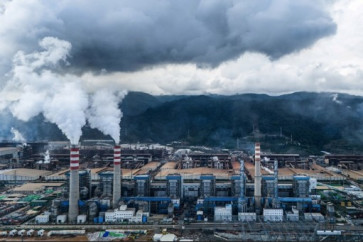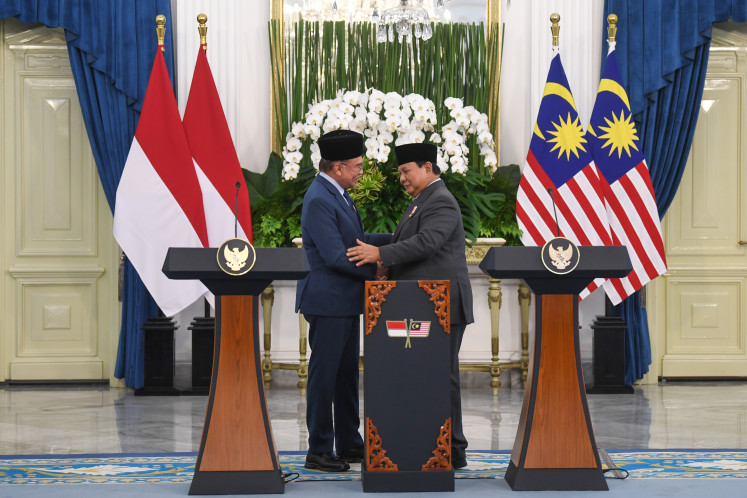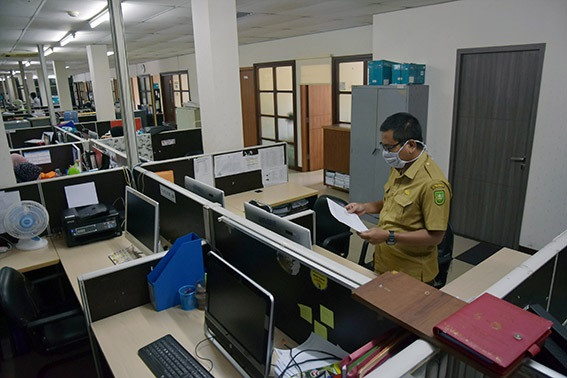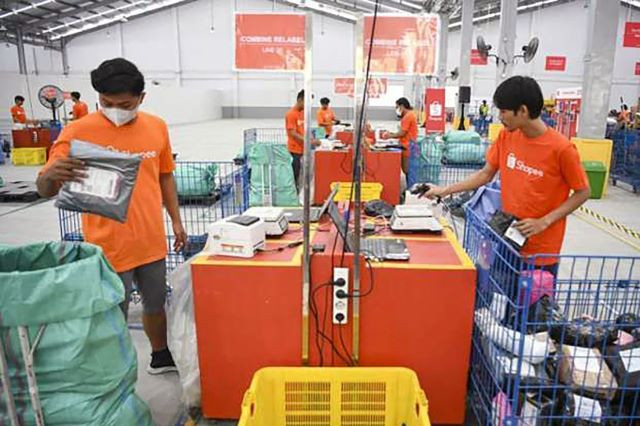Popular Reads
Top Results
Can't find what you're looking for?
View all search resultsPopular Reads
Top Results
Can't find what you're looking for?
View all search resultsMakassar to get first wastewater treatment plant in eastern Indonesia
The Rp 1.07 trillion (US$75 million) pilot project supported by the Asian Development Bank is to tackle water pollution.
Change text size
Gift Premium Articles
to Anyone
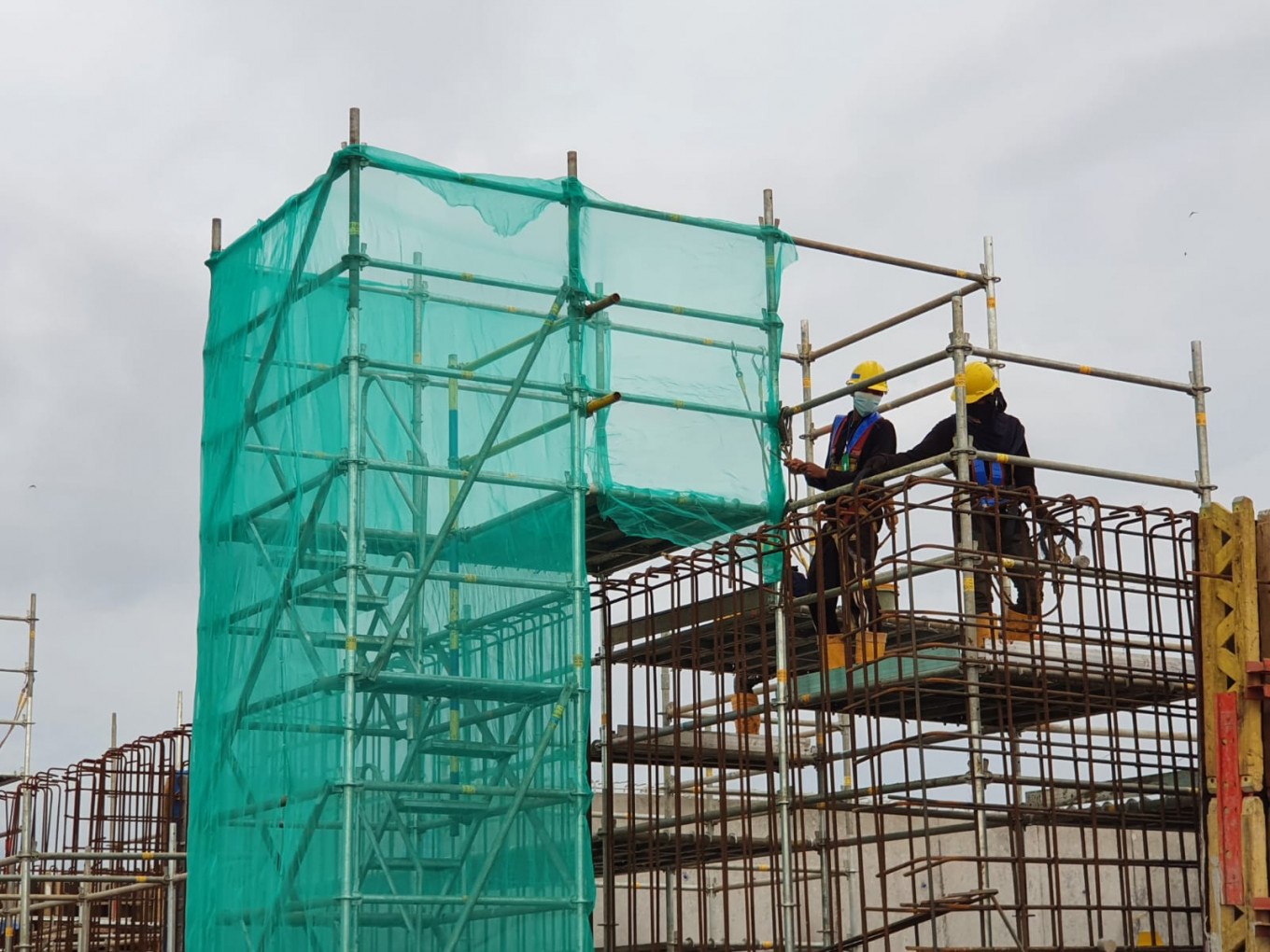
The first wastewater treatment plant of eastern Indonesia is to commence operation in Makassar in 2024.
The Rp 1.07 trillion (US$75 million) pilot project, which was made possible through a blended finance scheme, is expected to benefit the region’s roughly 70,000 residents amid concerns over worsening water pollution.
The project is funded through an Asian Development Bank (ADB) loan of Rp 532.86 billion, state budget spending of Rp 414.59 billion and regional budget spending of Rp 126 billion.
Ahmad Asiri, head of regional residential infrastructure in the Public Works and Housing Ministry’s Cipta Karya directorate general, said the project was part of the South Sulawesi administration’s efforts to pursue Indonesia’s sustainable development goals (SDGs).
Read also: Blended finance to help reach development goals in Indonesia
“We hope this wastewater treatment plant will provide good sanitation for the people and reduce water pollution,” Asiri told reporters on Tuesday during a press tour at the project site, WWTP B1.
He went on to explain that the project included a centralized wastewater treatment system for greywater (from cooking, bathing and washing) and blackwater (toilet waste) in Makassar.
The plant will have a capacity to treat 16,000 cubic meters of wastewater per day. The ministry aims to install 1,200 pipes to connect households and commercial buildings, such as restaurants and hotels, to the wastewater treatment site in the initial phase. The South Sulawesi regional administration will be responsible for continuing the project, with a total of 14,000 pipes planned to be installed.
Once operations begin in 2024, developers are to assess the facility’s effectiveness in reducing water pollution. According to its work unit head Heri Gunawan, the project is expected to solve approximately 2 percent of Makassar's waste problems.
Roughly 73 million of Indonesia’s 273 million people have no access to proper sanitation, according to Countdown to 2030, a multinational health and nutrition research group.
The United Nations Economic and Social Commission for Asia and the Pacific (UNESCAP) 2020 SDG progress report shows that Asia-Pacific countries including Indonesia are not on track to achieve any of the 17 SDGs by 2030. Clean water and sanitation are among several goals on which progress has been made, but “not fast enough”, UNESCAP executive secretary Armida S. Alisjahbana said in an interview with the Post on March 27 last year.
Read also: Palembang begins construction of wastewater treatment plant to reduce pollution
Separately, the housing ministry is set to finish the construction of the Islamic State University (UIN) Alauddin’s hospital, also in Makassar, by April 2022. Upon completion, the hospital will be the first Islamic university hospital in the country.
“We hope the hospital will allow UIN Alauddin Makassar to have an accredited medical course and become a haj and umrah hospital in South Sulawesi,” said UIN Alauddin vice rector for cooperation and institutional development, Kamaluddin Abu Nawas, on Tuesday.
Construction on UIN Alauddin’s hospital began in 2011 but later stalled. The housing ministry took over the project in November 2020 and had aimed to finish it by this month. However, the ministry missed the target as it redirected budget spending to tackling the COVID-19 pandemic.



